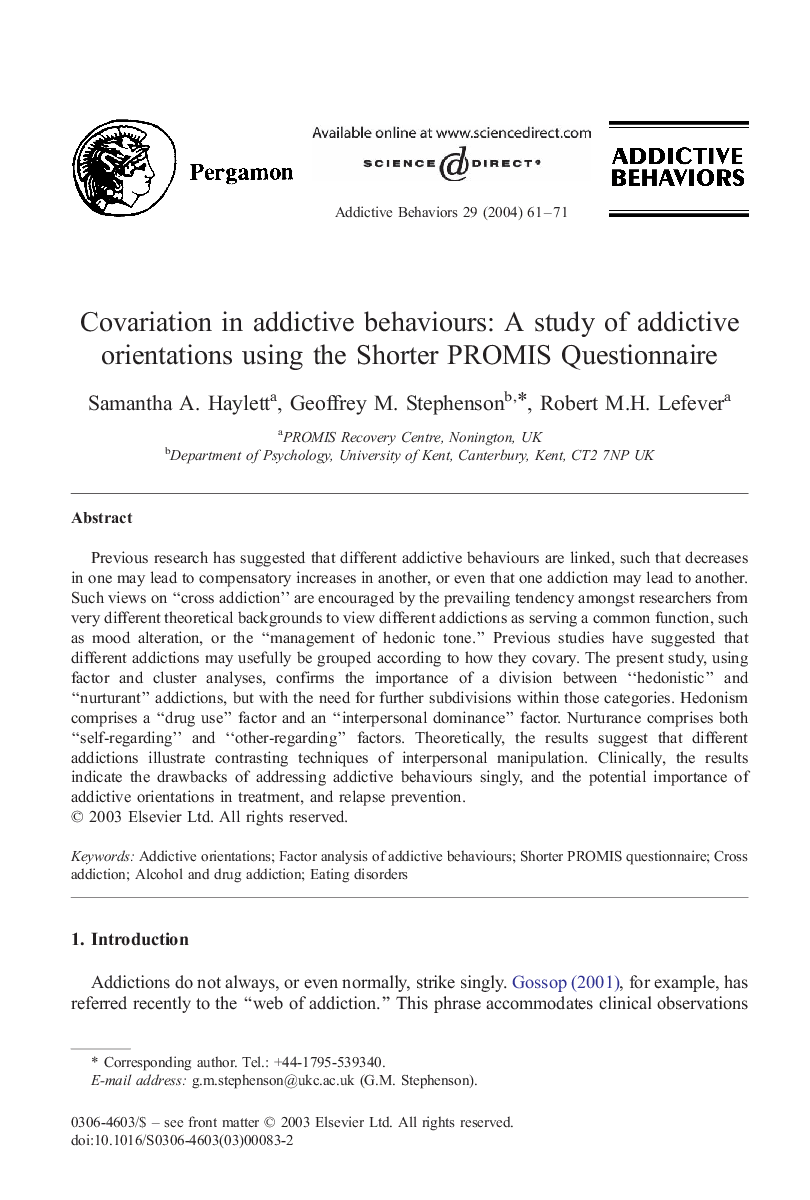ترجمه فارسی عنوان مقاله
تغییر همگام در رفتارهای اعتیاد آور: مطالعه از جهت گیری اعتیاد آور با استفاده از پرسشنامه PROMIS کوتاه
عنوان انگلیسی
Covariation in addictive behaviours: A study of addictive orientations using the Shorter PROMIS Questionnaire
| کد مقاله | سال انتشار | تعداد صفحات مقاله انگلیسی |
|---|---|---|
| 59108 | 2004 | 11 صفحه PDF |
منبع

Publisher : Elsevier - Science Direct (الزویر - ساینس دایرکت)
Journal : Addictive Behaviors, Volume 29, Issue 1, January 2004, Pages 61–71
ترجمه کلمات کلیدی
جهت گیری اعتیاد آور - تجزیه و تحلیل عوامل رفتارهای اعتیاد آور - پرسشنامه PROMIS کوتاه - اعتیاد متقابل - اعتیاد به مواد مخدر و الکل - اختلالات اشتها
کلمات کلیدی انگلیسی
Addictive orientations; Factor analysis of addictive behaviours; Shorter PROMIS questionnaire; Cross addiction; Alcohol and drug addiction; Eating disorders

